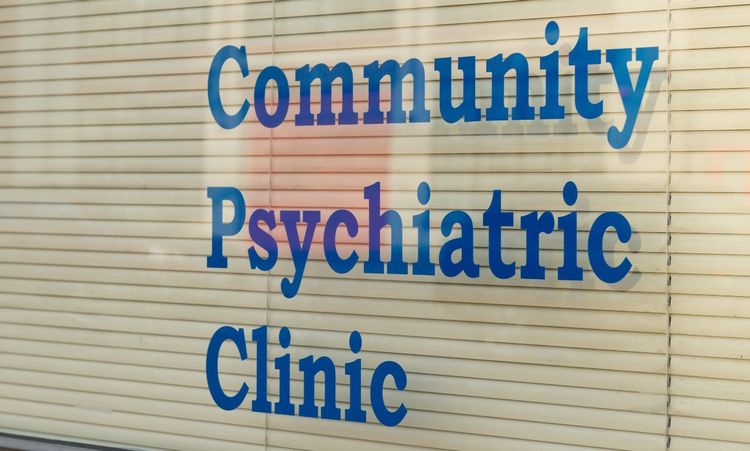College isn't always the dream it's made out to be. For many students, it's a mix of anxiety, exhaustion, and pressure. You're trying to balance classes, make new friends, and figure out who you are—all while managing the daily grind. It's a lot. Now throw in depression, and things can feel nearly impossible.
If you've been asking yourself, "Should I transfer colleges if I'm depressed?" you're not alone. It's a valid question. But it's also one that needs unpacking. Before making a life-changing decision, it helps to understand what's going on, what your options are, and whether a different school will genuinely improve your mental health.
Understanding Depression in College
The challenges of mental health in college
College life brings change. New faces. Different expectations. Less structure. Suddenly, you're the one in charge.
That freedom can feel exciting—or completely overwhelming. The shift from home life to dorm life disrupts routines, making it harder to stay grounded. Deadlines pile up. Social pressure intensifies. You're supposed to figure out your major, your career path, and your social circle—all at once.
Mental health often takes a backseat until it screams for attention. According to the Healthy Minds Study, nearly half of college students report symptoms of depression. It’s more common than many think, but still not discussed enough.
Add the stigma around mental illness, and it’s no wonder students suffer in silence. But mental health isn’t something you can ignore or “push through.” It deserves care, just like any physical illness would.
Signs that depression may be affecting your college experience
How do you know if it's just stress or something deeper?
Here are a few signs to look for: You’re skipping class, not out of laziness, but because even showering feels like climbing a mountain. You’ve lost interest in things you used to enjoy. Friends reach out, but you don’t respond. Eating feels like a chore. Sleep doesn’t refresh you.
Some students experience constant fatigue, even after a full night's sleep. Others battle feelings of worthlessness or numbness. For many, the thought of getting through the semester feels impossible.
If these symptoms persist for two weeks or more, that’s not just “college burnout.” That’s depression, and it needs attention.
What to Consider Before Transferring
Assessing the root cause of your struggles
Switching colleges can seem like the solution. New place, new start, new you—right?
But before updating your Common App, ask yourself a few tough questions. What exactly is making you feel depressed? Is it the campus culture? The size of your classes? The pressure to succeed?
Or is the sadness coming from within, unrelated to where you are?
Sometimes depression is situational. In that case, transferring could help. But often, depression follows us, no matter the ZIP code. If the issue lies deeper—like unresolved trauma, loneliness, or chronic stress—a new campus won’t fix it.
Be honest with yourself. Clarity now can save you from more confusion later.
How transferring might impact your mental health
There’s no denying that a fresh environment can be refreshing. If your current school feels toxic or incompatible with your values, a transfer could be a breath of fresh air.
But here’s the catch—moving isn’t stress-free. You’re dealing with transfer applications, transcript reviews, new deadlines, and the anxiety of starting over. You might lose credits. You’ll probably have to explain the gap in your academic journey. It’s not just packing up and going.
There’s also the emotional weight of starting from scratch. You’re leaving behind the familiarity you’ve built—even if it’s flawed. That reset button? It comes with pressure. And if you're already feeling emotionally fragile, the transition can be even harder.
Ask yourself: Is this change going to help me heal, or will it just distract me?
The emotional toll of starting over
Transferring may seem like a solution, but it comes with baggage.
When you enter a new college midstream, most students already have their routines and friendships in place. You’re back to being the new kid. And this time, you're not just trying to fit in—you’re also carrying the weight of why you left.
It can feel lonely at first. Orientation won’t feel the same when you’re one of the only transfer students. Group projects may be awkward. Making friends takes longer.
This isn’t to scare you—it’s just reality. If you choose to transfer, go in prepared, not just hopeful.
Alternative Options to Consider Before Transferring
Seeking counseling and support services
Before making a huge move, explore the help that’s already around you.
Nearly every college offers counseling services. These professionals are trained to support students going through what you’re feeling right now. Many campuses even offer emergency sessions, mental health hotlines, and peer support groups.
If you’ve never been to therapy, don’t stress. You’re not expected to know what to say. The counselor will guide the conversation. You just have to show up.
Therapy isn’t about “fixing” you. It’s about helping you understand what’s going on and giving you tools to cope. Some students benefit from talk therapy. Others try cognitive behavioral therapy or mindfulness techniques. Online therapy is also an option if in-person feels too intense.
And don’t forget about your professors, RAs, and academic advisors. Many are trained to recognize signs of mental distress. They can help you find extensions, modify workloads, or point you toward more help.
When a Break Might Be Better Than a Transfer
If the weight feels too heavy to carry, and school feels impossible right now, you do have another choice—taking a break.
Many colleges offer medical leaves of absence for mental health reasons. It’s not quitting. It’s stepping back to catch your breath.
During this time, you can focus on therapy, rebuilding your energy, and exploring what you really want. Some students use this time to work, volunteer, or try hobbies they never had time for.
When you return, you’ll likely be in a better headspace—ready to take on school again, whether at your original college or somewhere new.
Speak with your school’s academic or disability services office to understand the process and how it affects your financial aid or enrollment.
One Student’s Story: Finding Peace Without Changing Schools
Not every story of college depression ends with a transfer. Some students find healing right where they are.
One student, let’s call her Maya, felt completely lost during her second year. Big lectures drained her. She felt invisible in the crowd. Her grades dropped. She considered transferring to a smaller school.
Before sending out applications, Maya visited the campus counseling center. It was awkward at first, but she kept going. Week by week, she unpacked years of perfectionism and anxiety. She also joined a mental health student group and found friends who understood what she was going through.
Maya didn’t transfer. She adjusted her class schedule, took a lighter course load, and found professors who supported her growth. She still had tough days, but she had tools to handle them.
Your path may look different, but it’s proof that staying can work too—if you get the right help.
Conclusion
So, should you transfer colleges if you're depressed?
Maybe. But only if the school itself is the source of your pain. Transferring isn’t a cure. It’s a big decision that deserves thoughtful consideration, not a knee-jerk reaction.
First, try seeking support where you are. Counseling, peer groups, and academic adjustments can make a huge difference. If things still don’t improve, and you’ve explored all your options, then transferring might make sense.
Whatever you do—don’t stay silent. Depression isn’t something to “tough out.” You deserve support, healing, and peace. Whether that’s on a new campus or the one you’re already on is up to you—but don’t make the call alone.




